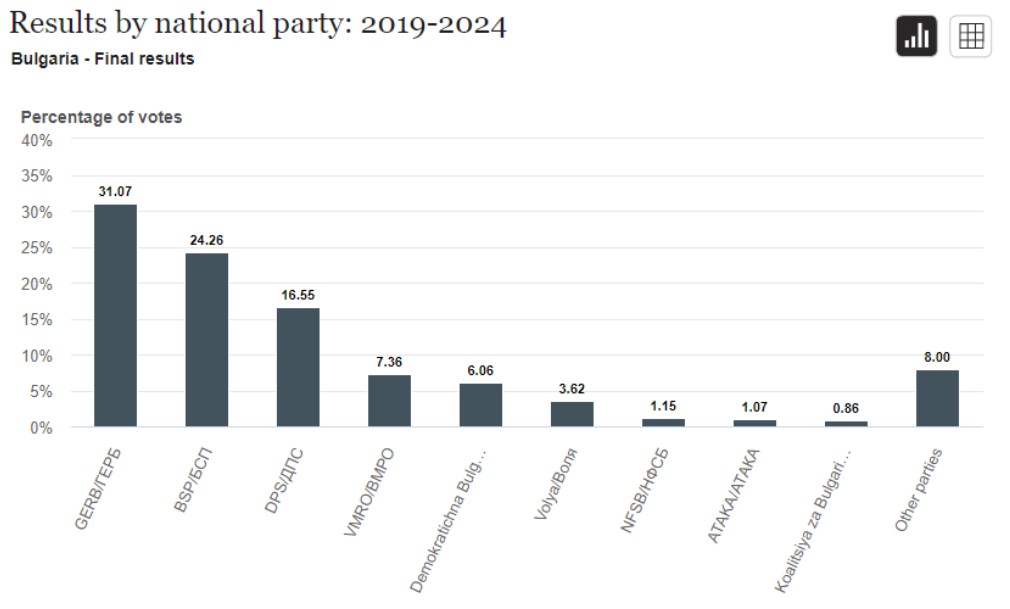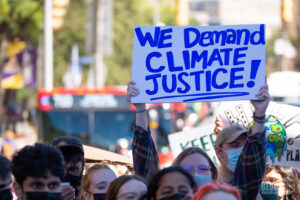
The ruling party GERB won the European Parliament elections in Bulgaria with 31.07% of the votes. Second is the BSP (Bulgarian Socialist Party) with 24.26%, while the third is the Movement of rights and freedoms (DPS) with 16.55% (which candidate was Delyan Peevsky – the person that provoked huge protests in the Bulgarian society in 2013). MEPs will be send by two more formations – IMRO (7.36%) and Democratic Bulgaria (6.06%). Distributed into mandates, the results mean 6 MEPs for GERB, 5 for BSP, 3 for MRF, 2 for IMRO and 1 for Democratic Bulgaria.
Although the main expectation was the overturning of the GERB status quo after solid revelations of corruption and misuse of power by many government ministers, the BSP opposition failed to outperform its main opponent GERB. The reasons for this are also significant infringements by GERB with the manipulation of votes in various places around the country and the pressure of people in small settlements to vote for the party, otherwise they are threatened to be sacked. But the reason is laying also in the campaign of the opposition. 1) BSP tried to make a right wing populist campaign with really conservative theses including church fundaments 2)BSP had an internal conflict with the inner opposition, which supported Sergey Stanishev, the leader of PES. He alone is disclaimed by the leader of BSP Kornelia Ninova. That divided its electoral power.
Another characteristic feature of the past elections was the low turnout of the population. Elections to the European Parliament have shown that the party system is facing a heavy delegitimisation, the parties hardly even mobilise their hard cores, and those who choose not to participate in the democratic process are threateningly many. A huge part of the Bulgarians having the right to vote remains unrepresented because they refuse to vote. The absence of a new and strong formation capable of raising a visible wave actually gave the status quo parties a chance to confirm their outcome.
The past election has convinced us even more in one thing. Once again, our parties in the European elections have refused to talk about Europe. The European discourse was forbidden at the expense of the national. That is, these elections took on the importance of national and created just such a competition among the parties.
The progressive left did not succeed again in Bulgaria. The only authentic leftist platform was that of the independent candidate Vanya Grigorova, who is a trade unionist and openly talks about workers’ rights and the need for a European policy in this direction to reduce inequality.
The Bulgarian left, which has entered a coalition with an ABC party (composed of former BSP members), will not have a representative in the new EP. Unlike other European countries, where the greens have been very successful, Bulgaria again chose the party of corruption.
In Bulgaria there is a strong need for a new alternative to everything the people have seen and to which they are already apathetic.



